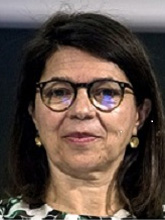11 January 2017
View Webinar Content
Presentation—Introduction to the webinar and panelists
Presentation—Sarah Stinson: Pan-Canadian Framework: A Vision for Canada’s Built Environment
Presentation—Meredydd Evans: Overview of Links between NDCs and Building Energy Efficiency
Presentation—Jennifer Layke: Public Private Collaboration on Building Energy Efficiency in Climate Change Mitigation
Presentation—Marie-Christine Roger: France's Steps in Implementing NDCs and Strategies for Leveraging Domestic Policies on Building Energy Efficiency (Webinar Presentation)
Transcript—Webinar audio transcript
The Clean Energy Solutions Center, in partnership with the Pacific Northwest National Laboratory, hosted this webinar on linking building energy efficiency with nationally determined contributions (NDCs). It builds on work done by the International Partnership for Energy Efficiency Cooperation (IPEEC) since 2009 to accelerate countries’ move to energy efficient practices and to offer a platform for exchange on energy efficiency.
Because buildings account for a large share of global energy consumption, building energy efficiency is a critical part of climate mitigation policies. Over 50 countries included building energy efficiency in their NDCs under the Paris Climate Agreement that was negotiated in December 2015 and entered into force in April 2016. The webinar explored the links between climate and building energy efficiency policies, and panelists discussed the role of public-private cooperation in improving building energy efficiency as part of climate change mitigation. In addition, they discussed strategies for leveraging domestic policies on building energy efficiency for implementing NDCs. Presentations were be followed by an interactive question and answer session with the audience.
Panelists
 Sarah Stinson
Sarah Stinson
Sarah Stinson has been Director of the Buildings and Industry Division in the Office of Energy Efficiency at Natural Resources Canada since April 2014. Prior to joining Natural Resources Canada, Ms. Stinson was, from 2011 to 2014, Deputy Director of Intergovernmental Relations at Global Affairs Canada. From 2008 to 2010, Ms. Stinson served in the Foreign and Defence Policy Secretariat, Privy Council Office as Analyst responsible for Europe, International Financial Institutions and the G20. As a foreign service officer with Global Affairs Canada, Ms. Stinson represented Canada as the Trade Commissioner (Science and Technology) in the Hague, the Netherlands from 2004 to 2008. Ms. Stinson has also worked for the Government of Alberta and in the private sector in management consulting. Ms. Stinson holds a Bachelor of Arts (Honours) degree and MBA from the University of Alberta, Canada.
 Meredydd Evans
Meredydd Evans
Meredydd Evans is an energy policy and finance expert with over 20 years of international experience. She has worked on energy efficiency and clean energy policies and projects in numerous countries. She is a senior staff scientist at the Pacific Northwest National Laboratory (PNNL), where she manages a program on international sustainable energy, including efforts on building energy efficiency codes and retrofits, energy data for policy and clean energy investments. She began working at PNNL in 1994, and she was seconded to the International Energy Agency in Paris from 2002 to 2006. While at the IEA, she served as Acting Head of the Non-Member Country Division and she wrote two books on energy policy. Both works have been used by national governments in designing policies, laws and regulatory systems. In addition, she has she led assessments of climate-related investments and policies, and she has developed energy efficiency and greenhouse mitigation projects worth over $100 million. Ms. Evans has a B.A. from Columbia University’s Barnard College and an M.A. from Harvard University. She is fluent in five languages and has published numerous books and articles.
 Jennifer Layke
Jennifer Layke
Jennifer Layke is global director of WRI’s Energy Program. Layke oversee initiatives and projects that aim to expand access to clean and affordable energy that will reduce climate risks and strengthen communities worldwide. Layke leads a global team of experts in energy access, renewable energy and energy efficiency in China, India, Indonesia and the United States. Previously, Jennifer was director of the Building Efficiency Initiative of the WRI Ross Center for Sustainable Cities. From 2010 to 2014 Jennifer ran Johnson Controls’ Institute for Building Efficiency a global initiative to provide information and analyses on the technologies, policies, and practices to deliver high performance buildings. In addition, she supported strategic planning on corporate energy, sustainability and policy goals. Jennifer’s international experience includes consulting for the World Bank and the U.S. Environmental Protection Agency on Montreal Protocol technology transfer. She has an A.B. in Asian Studies/Political Studies from Pitzer College in Claremont, California, and a M.S. and MBA from the University of Michigan. In 1990, she was awarded a Thomas J. Watson Foundation fellowship for a year of sociology research in Singapore, Malaysia and Taiwan.
 Marie-Christine Roger
Marie-Christine Roger
Marie-Christine Roger is a civil engineer graduate of the National College of State Public Works with a specialization in urban planning. She has an extensive experience in public policies targeting buildings and building codes. She began working for the Central Administration of the Ministry of Energy, Ecology and Sea in 2003, as head of the buildings regulation department. She is responsible for the transposition of the energy performance of buildings directive, and she is a member of the Energy Performance of Buildings Committee, implemented by the European Commission, where she represents the Directorate of Housing. She was actively involved in the French Grenelle Environment Forum process from 2007 to 2010 where she wrote the report defining the outlines of the subsequent ambitious buildings regulations implemented for achieving the related objectives. She has worked on sustainable construction and energy efficiency for Tunisia through a France-Tunisia eco-construction twinning as the energy efficiency expert. Before this, she worked in the Paris Region Land Management and Development Agency, from 1992 to 2002, where she managed the development of sustainable significant urban projects of neighbourhoods featuring housing, economic activities and public facilities. The first half of her career was spent as a manager of urban and construction projects, including retrofitting programs for municipalities and social real estate companies.
